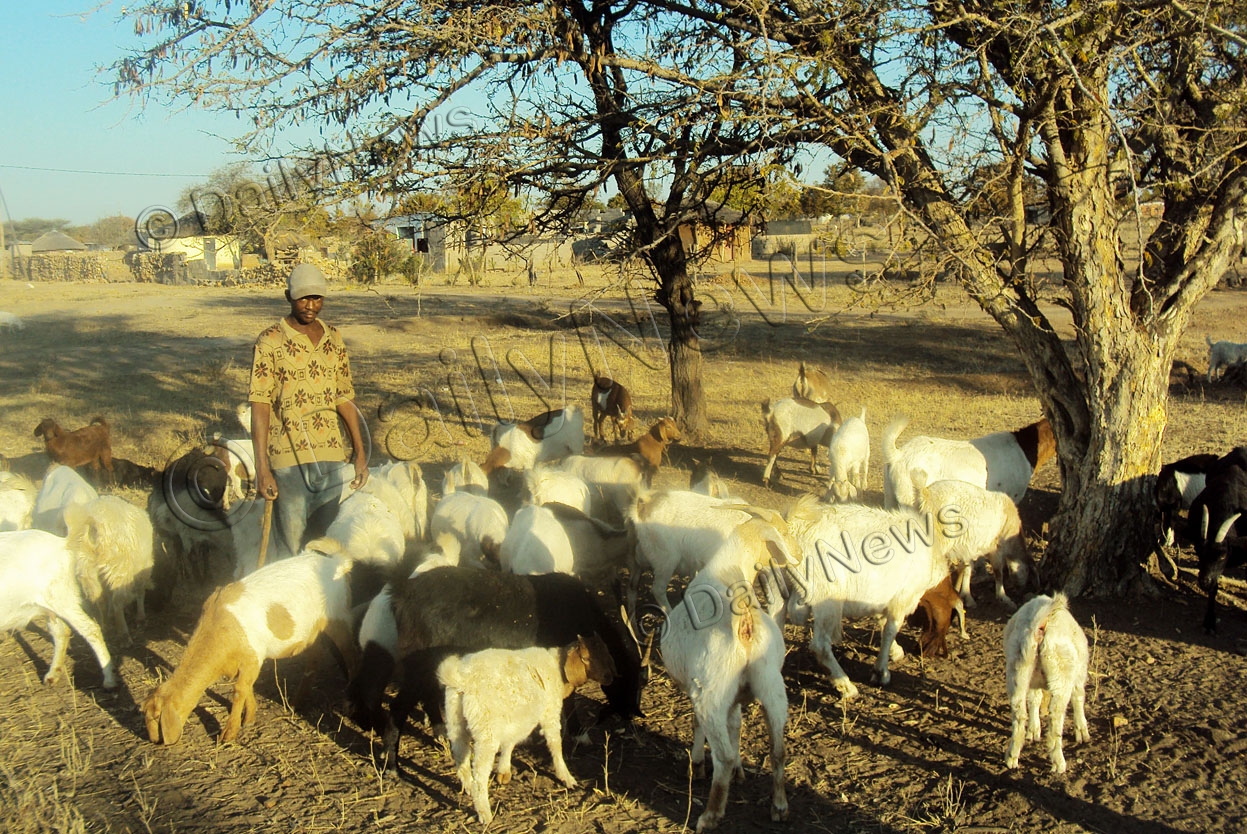Manewe trades cables for herders rod
17 Aug 2015
His father used to tell him that “Moroto wa ntlha wa mosimane o latlhelwa ko lesakeng,” meaning that the first thing to do for a boy in the morning is to relieve himself in the kraal.
Quitting the job he spent five years studying for abroad was not a problem for 42 year old Bonno Manewe of Marobela village. To some of his colleagues, it was a suicidal move, on the other hand he was optimistic and confident of the results since he was passionate about the idea.
Speaking in an interview recently, Mr Manewe indicated that he fell in love with the bush during his tenure as a Tirelo Sechaba participant in 1991 at Seronga where he served under the Department of Wildlife and National Parks .
He noted that he spent weeks in the bush hence the interest in farming came naturally to him. But he could not immediately pursue his passion for farming after Tirelo Sechaba as most parents then expected their children to excel in education.
He studied electrical engineering in the United Kingdom for five years and worked at Botswana Power Corporation upon completion.
During his stay at BPC, he realised he was ‘an alien’ since he was in an environment he did not fit in and so he decided to quit in 2001.
Armed with the little knowledge he had acquired during the time he was relieving himself at the kraal, he started his project of small stock farming with the goats he had kept while still working.
Disaster hit in 2011 when the country experienced drought and he was left with only 16 she goats but he did not despair and had to find some means of survival. When the rains started in the season of 2012, he decided to mix his breed with the Boer goats because all he had were Tswana breed.
“I wanted to mix the two breeds because our Tswana breed has some advantageous characteristics of resistance to diseases and drought whereas the Boer genes provide more meat,” he said.
He pointed out that having a mixture of these two breeds guarantees him quality breed that will not cost him much.
Mr Manewe added that he practices veld grazing and usually after the ploughing period, he feeds his goats with maize and sorghum stock.
He indicated that he also ploughs lab-lab that he uses as supplementary feed which is supposed to be grinded and mixed with phosphate.
He advised that lab-lab should be dried in a cool place so that it remains green and does not lose chlorophyll which is where nutrients are stored.
He also buys livestock salt to feed his goats as calcium supplement.
He indicated that he practices controlled breeding, a system where he separates males from female goats and bring them together at a certain time for mating.
Furthermore, he explained that this ensures goats give birth at the same period making it easy to take care of the kids at the same time.
Mr Manewe explained that goats give birth after every six months and at six months they are usually ready for sale. With regard to marketing, he said he sells to individuals and farmers who in most cases need male goats for breeding but decried low sales from butcheries and supermarkets since they want to buy at lower prices not considering the cost he incurred in taking care of the livestock.
He also indicated that his reliable market is the government.
He said although they take time to pay government officials buy at lower prices when goats are still young before he incurs too much costs on them and so he is comfortable with that.
He pointed out the biggest challenge he is facing is lack of grazing land as he is currently using a 16 hectare field and as a result he is forced to rent out other fields. He said land owners are usually not reliable since they can change their mind anytime which is frustrating.
Another challenge is that of diseases, especially the heart disease which is caused by a common parasite called a bont tick. He highlighted that foreign breeds are susceptible to heart disease and rare in the Tswana breed.
Since his stock is mixed there is a bit of resistance but was quick to point out that one has to be fully equipped with medication and know the symptoms of the disease so it can be detected at an early stage.
His advice to those who want to venture into this kind of project is that they should have passion for it because if they do not, they will easily give up during hard times. ENDS
Source : BOPA
Author : Ndapiwa Mothetho
Location : MAROBELA
Event : Interview
Date : 17 Aug 2015






